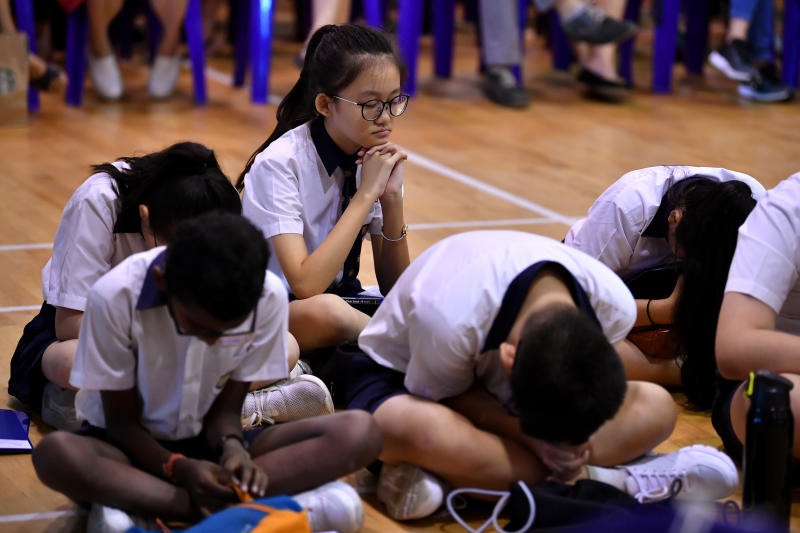MPs call for the end of streaming, saying labels like 'Normal' limit students' potential
Sign up now: Get ST's newsletters delivered to your inbox

Subject-based banding, which last year was expanded to all secondary schools, currently lets Normal stream students take higher-level subjects, including those from the Express stream, if they are strong in it.
ST PHOTO: LIM YAOHUI
Follow topic:
SINGAPORE - It is time to move away from streaming children into Normal and Express tracks. That was the call from several MPs on Monday (March 4) as the debate on the Education Ministry's budget kicked off.
Urging the ministry to abolish academic streaming, they said it has led to Normal-stream students losing motivation and confidence, with two MPs giving real-life examples of students limiting their own potential because of the label.
In place of streaming, which has been in place for about 40 years since 1980, they suggested expanding subject-based banding to all students, allowing everyone to share classrooms but learn at their own pace.
Subject-based banding, which last year was expanded to all secondary schools, currently lets Normal-stream students take higher-level subjects, including those from the Express stream, if they are strong in it.
While streaming allows students to learn at their own pace, Normal-stream students often feel discouraged by the label "Normal" placed on them, and lose self-esteem and confidence, MPs said.
Describing streaming as a "sacred cow" that needs to be slain, Ms Denise Phua (Jalan Besar GRC), who chairs the Government Parliamentary Committee for Education, highlighted the 2002 Jack Neo film I Not Stupid, which revolved around the lives and struggles of three pupils in the EM3 academic stream that was for those who were academically weakest.
Last year, a video documentary called Regardless Of Class, hosted by Senior Minister of State Janil Puthucheary, reaffirmed the differences between students from different streams, she added.
Dr Intan Azura Mokhtar (Ang Mo Kio GRC), a former secondary school teacher who has long called for streaming to be abolished, said: "It is time for us to move on and recognise that academic streaming places self-limiting beliefs on students who think they are only as good as the stream they are in."
Drawing from his past experiences as a science relief teacher 30 years ago, Mr Ang Wei Neng (Jurong GRC) said that Normal-stream students had a sense of "resigned acceptance and defeat", especially when he tried to teach them topics that were beyond their syllabus.
"As a young and idealistic teacher at that time, I tried to interest the students in science, no matter which streams they were from. Even when certain sections were not supposed to be taught to the Normal-stream students, I went on to teach them, as it was interesting," he said.
"However, the Normal-stream students were quick to dismiss most of what was in their textbooks. They said: 'We are taking the reduced syllabus, no need to learn.'"
Mr Charles Chong (Punggol East) said streaming can create a "class divide" between students who are deemed by the education system to be academically able and those who are less so.
Mr Louis Ng (Nee Soon GRC), who called for streaming to be scrapped last week, again urged the MOE to address concerns about social stratification due to streaming.
All the five MPs who spoke on streaming called for subject-based banding to replace it, allowing students to take a combination of subjects at different difficulty levels, but without clear-cut labels such as "Normal".
"Some of us excel in languages, others excel in mathematics or the sciences, while others excel in sports or the arts," said Dr Intan, who also suggested that graduation certificates should no longer indicate if student took the N levels or O levels.
Said Ms Phua: "Doing away with streaming does not equate to putting everyone in the same class for every subject, ignoring the need for each to learn at their own pace and method. Far from it."
In 2008, the MOE scrapped streaming in primary schools and replaced it with subject-based banding, which allows pupils to take a combination of subjects at either Standard or Foundation level.
Mr Ang added: "Clearly, subject-based banding has shown that sometimes we pigeonhole and stream our young too early."

